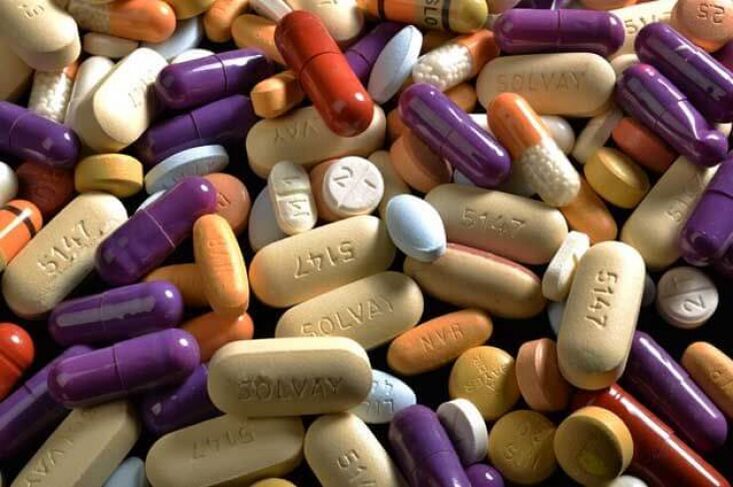Prostatitis is a diagnosis that sounds scary, especially to men over 40. The disease can be caused by a lack of physical activity, a sedentary lifestyle, mechanical injuries to the genitourinary organs, stress, depression, overeating, and even a lack of sexual intercourse. In such a situation, it is important not to hesitate, but to go to the urologist immediately.
At the initial stage of prostatitis, medication can cure it, so do not neglect the prescribed examinations - this will protect your health. Fast-acting, inexpensive drugs for prostatitis are your way out in this situation.
Below are the most commonly used drugs. However, only a specialist has the right to make the final decision about their use in your case. Remember that it is often possible to heal with inexpensive treatment, too.
Forms of drugs

Drugs for prostatitis are divided into groups according to the type of application. For example, some drugs are only used rectally, while others are injected.
However, it is important to know that prostate inflammation therapy should be comprehensive. If the patient is treated with antibiotics, then later he will have to take vitamin complexes to increase immunity.
This is another reason why only a doctor makes a decision about medication - a person with no medical training will definitely harm himself.
Prostatitis drugs are often inexpensive and effective without a prescription.
Candles
Suppositories are exactly those drugs that are used rectally (they need to be inserted into the anus). With them, you can cure prostatitis even at an advanced stage, if other means are used.
Basic features:
- analgesic effect;
- anti-inflammatory effect;
- Protection against bacteria.
Use depends on the medication, but typically patients should not move for half an hour. The course of therapy rarely lasts longer than 10 days, but can not last less than 5 days.
You cannot prescribe suppositories for yourself - they are not allowed for all types of prostatitis. Before their introduction, it may be necessary to be treated with other drugs that reduce the sensitivity of the patient's anus.
Injections
Often prescribed with other medications. Thanks to injections, the drug quickly penetrates the body.
Instillations
The bladder must be emptied before instillation. The essence of the procedure is that a fast-acting drug for prostatitis is injected through the external opening of the urethra. You shouldn't try this method on your own - it is unlikely that you will be able to perform the instillations correctly unless you have the appropriate training. Entrust this to a specialist.
Microclyster
Microclysters are predominantly a folk method, since decoctions and herbal tinctures are involved in the procedure. However, this therapy method should still be discussed with a specialist, even if it appears completely harmless.
With prostatitis, it is very easy to harm the male body. Microclysters are done at bedtime. Make sure that the prostate is not exposed to sudden changes in temperature.
Pills
The main effect of the tablets is antibacterial, but drugs with an analgesic effect are often prescribed during treatment. With them, you can choose chronic prostatitis.
Pills for prostatitis, inexpensive and effective, are divided into three groups:
- Fluoroquinols;
- Tetracyclines;
- Penicillins.
Other types of medication include creams, gels, and ointments, as well as innovative techniques. They are not used as often in prostatitis, so they are not put into separate groups. Muscle relaxants are used to relax muscles.
For prostatitis, a man is often treated with hormonal agents - this happens when the prostate has grown due to increased testosterone levels. In this case, the drugs are aimed at lowering them.
Prostatitis drugs
Before using any popular drug, it is necessary to carefully read the instructions - in the event of illness, you can not blindly believe the comments.
And the doctor will also ask you to do tests so that the diagnosis is accurate - it depends on what drugs are being prescribed. In addition, the specialist often prescribes inexpensive medication himself if these are sufficiently effective and can heal the prostate.
Self-medication is not recommended.
Always follow the recommendations of the doctor, in no case do not take independent treatments. Some drugs should be combined, but their tolerability must be taken into account.
Nor will it be superfluous to take tests from time to time. Kidney failure occurs when there is no or inadequate therapy for prostatitis, and this disease is the main contraindication for most known drugs. And remember: it is imperative to treat prostatitis, but only listen to your doctor's advice.
























